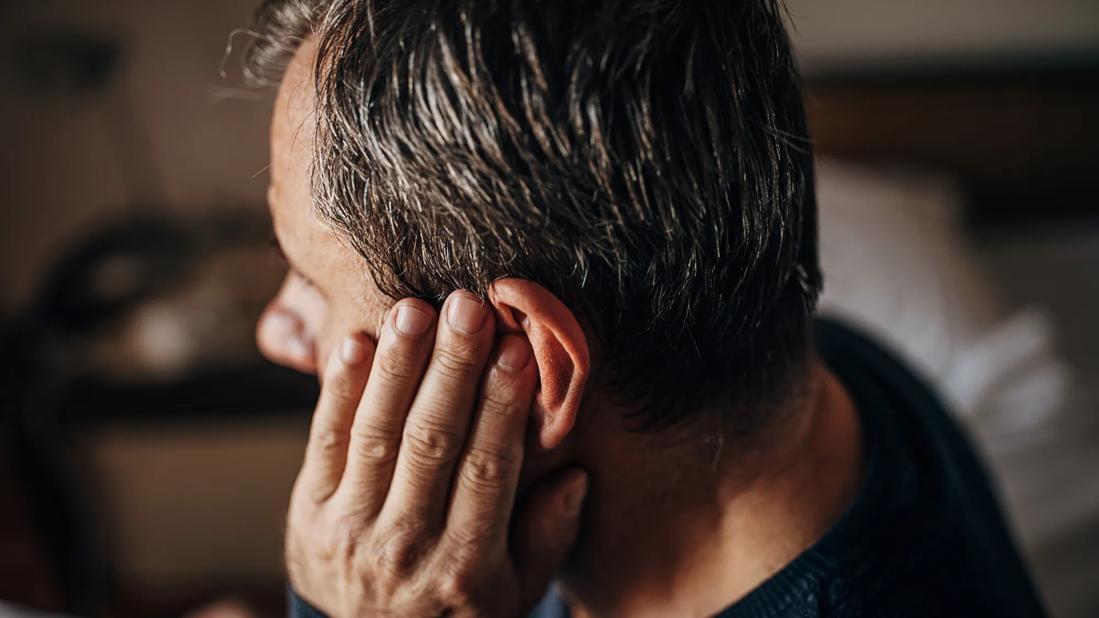Is There a Link Between Allergies and Ear Pain?
Yes, ear pain can result from seasonal allergies, causing even more issues

Allergies have a way of wreaking havoc on your body. Your eyes get itchy and swollen. Your sinuses feel stuffed. The congestion in your throat and chest never seems to go away. And ear problems, in particular, can come out of left field.
“Ear pain can be an unexpected turn of events when you have allergies,” says allergist Dylan Timberlake, MD. “It can make an already uncomfortable situation even worse.”
Dr. Timberlake explains why ear pain happens when you have allergies and the best — and worst — ways to treat it.
How allergies affect your ears
From dizziness and brain fog to a sore throat and poor sleep, allergies can have widespread effects. Your ears are in the line of fire, too. Itchy ears and ear pain are common complaints during allergy season.
To understand why, it helps to know a little about ear anatomy, says Dr. Timberlake. Your ear includes three main parts: the outer ear, middle ear and inner ear.
Your middle ear has a narrow canal (eustachian tube) that connects it to the back of your nose. The eustachian tubes drain fluid and equalize pressure inside your middle ear.
If you have nasal congestion caused by allergies, this inflammation can partially or fully block your eustachian tubes. This condition is called eustachian tube dysfunction.
“You may feel a sharp pain, dull ache or pressure in your ears — like when you drive up a mountain or fly,” illustrates Dr. Timberlake. “Some people describe it as a muffled feeling of being underwater.”
How do you know if your ear pain is from allergies?
It can be challenging to know if ear pain is caused by allergies or an ear infection. You can always make an appointment with a healthcare provider, who can figure out what’s going on and determine the best treatment for you.
Asking these questions can also help you work out what’s causing the pain:
- Does ear pain always happen at certain times/the same time of year? For example, allergies run rampant during the spring and fall.
- Do you have any known allergy triggers (allergens)? Ear pain typically occurs with nasal allergies, such as those caused by pollen, pets, dust mites and mold spores.
- What other symptoms do you have? If ear pain is from an allergy, you’ll probably have a stuffy nose, runny nose, sneezing and itching. Of course, these symptoms overlap with upper respiratory infections — the most common cause of ear infections. Signs that point to an ear infection include fever, loss of appetite and ear discharge.
“Allergies don’t cause ear infections. However, if you have eustachian tube dysfunction and that fluid in your middle ear can’t drain as well, it sits in the middle ear space and becomes prone to infection,” Dr. Timberlake clarifies.
Treating ear pain from allergies
The main strategy for stopping ear pain and relieving some of the pressure is to get your allergies in check.
Avoid triggers
Healthcare providers recommend decreasing exposure to known allergens whenever possible. During pollen season, that might mean closing your windows or preventing your pets from bringing pollen into your home by bathing them often and keeping them on a short leash.
Take allergy medications
Over-the-counter medications are commonly used in allergy care. For example, nasal steroids, like fluticasone, reduce inflammation in your nose and back of your throat. Oral medications containing loratadine and fexofenadine block your body’s allergic reactions. For severe allergies, your provider may recommend a prescription medication to give you relief.
Consider allergy shots
Allergy shots deliver small doses of an allergen to provoke an allergic response. The doses increase over time, allowing your body to get used to the allergen. So, you react less when you encounter the allergen in your environment. Allergy shots are available for most of the allergens that typically cause ear pain.
Talk to your child’s provider about antibiotics
“Antibiotics are a common treatment for ear infections, but they won’t help if the pain is just due to a build-up of pressure and not an infection,” says Dr. Timberlake. “Home remedies can be effective in some situations.”
What not to use for earaches from allergies
Some treatments for allergy-related ear pain and pressure can be a waste of time and money, states Dr. Timberlake. When in doubt, avoid these “solutions”:
- Drops. Earache drops that go in the outer ear won’t help pain that’s coming from the middle ear.
- Benadryl®. Diphenhydramine (Benadryl) is another treatment to avoid. “In the allergy world, we tend to steer clear of diphenhydramine for daily use because of its side effects,” explains Dr. Timberlake. “Other allergy medications are just as effective and won’t cause drowsiness and problems with coordination.”
- Popping ears. You may be tempted to pop your ears to clear them out. It may help momentarily, but it won’t ease the inflammation. And you might actually increase pressure in the middle ear or cause damage to your ear drum if you go too hard with a cotton swab, making the pain worse.
Bottom line? When it comes to your allergies and ears, stick to the tried-and-true treatments providers recommend. They’re the best ways to control your allergy symptoms so they don’t control you.